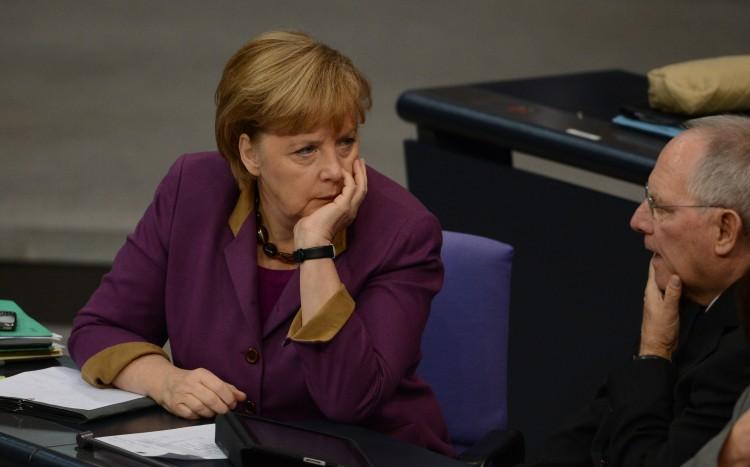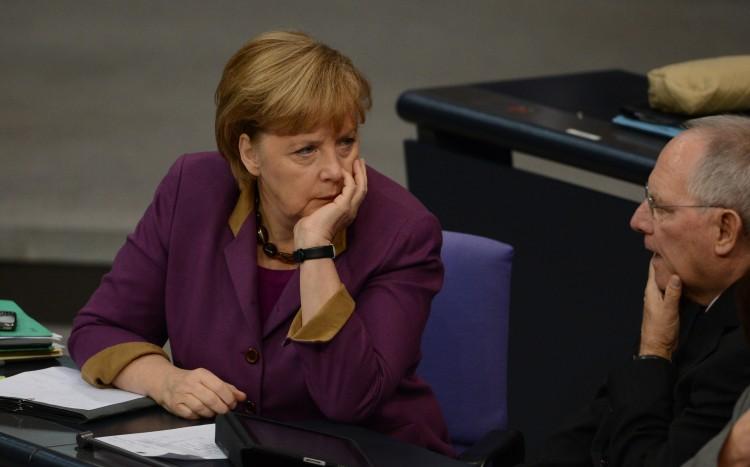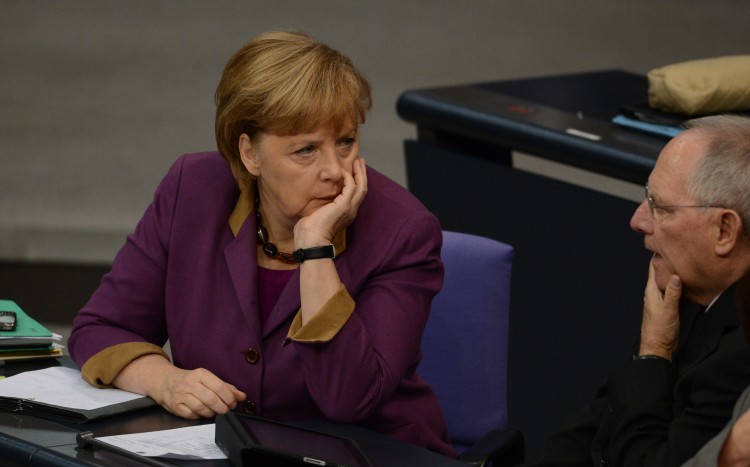After a series of failed negotiations, European authorities and the International Monetary Fund (IMF) agreed to reduce Greek debt and pay out the December bailout money.
In a sign of bailout fatigue, European markets barely bought the news. The EURO STOXX Index and the euro currency gained only modestly, rising 0.7 and 0.2 percent respectively last week. The Greek financial market was down 4.3 percent.
European institutions and the IMF found it hard to come to an agreement to avoid another Greek default within the space of one and a half years. This is partially due to their divergent agendas. The current kicking the can exercise reflects the conflicting agendas, as the only thing it does is buy more time.
The proposed plan will let Greece buy back private debt on the market for a steep discount, with the target set at 35 cents on the dollar. Since Greece is broke, it will get the money to buy the debt indirectly from European nations. The European Financial Stability Facility (EFSF), an entity set up to channel funds from richer to poorer nations, will loan Greece the money.
If everything goes well, Greece will be able to cut its debt to GDP ratio by 10 percentage points, according to Société Générale.
German Elections in 2013 Responsible for Compromise
Despite the numerous weaknesses of the plan, its goal is to get Greece past next September. Greek economist Yanis Varoufakis is correct in his analysis that the German general elections in September 2013 were the decisive driver behind the current solution.
Voters in Germany are getting tired of continuous bailouts for weaker European countries. So far, the ruling government under Chancellor Angela Merkel of the conservative Christian Democrats tried to reassure voters. She said loans made by Germany to Greece are going to be repaid and citizens by and large believed her.
With the Greek economy in free fall, this belief is waning and rightly so. Greece will only reach the proposed debt to GDP target of 124 percent by 2020 through official debt forgiveness. Institutions like the European Central Bank (ECB), the IMF, and the other European countries simply won’t get all of their money back.
While the market has accepted this as a fact, this is very unpalatable to German voters. Should the current debt-buyback plan succeed, Greece will get by without official debt forgiveness for a little while longer. Merkel hopes that Greece will make it past September 2013, so she has a realistic chance of re-election.
IMF has its Own Agenda
The reason that IMF boss Christine Lagarde and the chairman of the Eurogroup, Jean-Claude Juncker, had a public disagreement recently can be found in the IMF charter.
The IMF is charter bound to never lend to countries that won’t be able to repay. It also can never take a haircut on its portion of the loans. This is why official targets, such as the 124 percent of debt to GDP by 2020 that are deemed “sustainable,” are so important to justify the continued involvement of the fund.
The problem is that given the state of the Greek economy, Greece will not be able to meet those ratios without debt forgiveness. Since the IMF cannot take a haircut, the brunt of the debt forgiveness will have to be shouldered by the European nations, mostly by Germany.
With those two conflicting agendas, it is not surprising that the institutions opted for the debt buy-back plan. It costs little money up-front (estimates say $22 billion in EFSF money), looks good on the surface, and might get Greece past the German election.
After September 2013, we will then arrive at the official debt forgiveness that Greece needs in order to keep the IMF onboard. If Merkel gets re-elected, she will have made her goal as well. The losers will then be the German taxpayers.
The Week Ahead
Another ECB meeting is on deck this week, which will likely not produce new easing measures. Unemployment is trending upward while inflation is relatively stable, below the medium term target of 2 percent. Nonetheless, communication from the ECB does not suggest immediate action.
Policymakers believe that they have accommodated markets enough with the standby quantitative easing program called “Outright Monetary Transactions.”
The Epoch Times publishes in 35 countries and in 19 languages. Subscribe to our e-newsletter.







